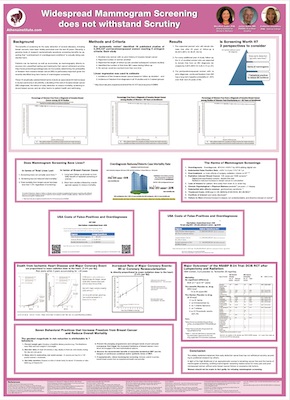Screening for breast cancer- is it worth it?
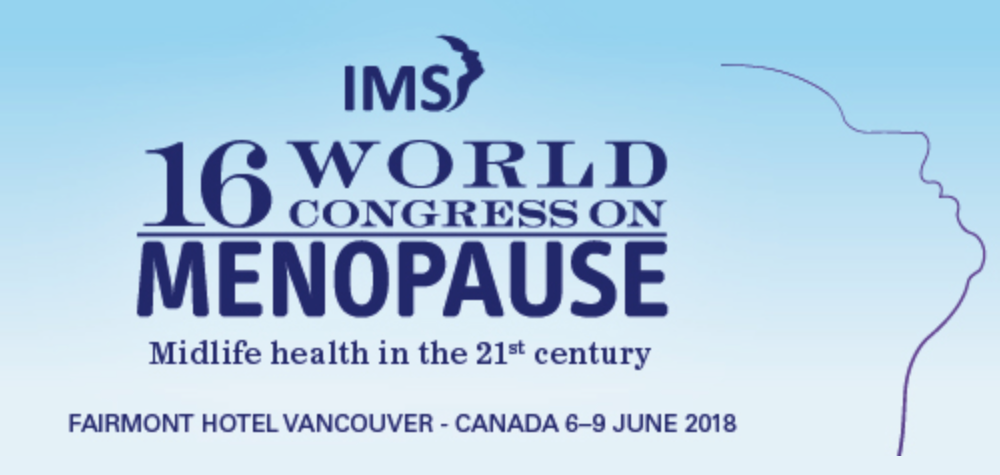
By Winnifred B. Cutler, PhD, Athena Institute for Women's Wellness, James Kolter, MD, FACOG, Bryn Mawr Hospital, Catherine Chambliss, PhD, Ursinus College
Copyright ©2018 Athena Institute for Women's Wellness, incLecture presented by Dr. Winnifred Cutler June 9 2018 by invitation from its Scientific Committee at the 2018 meeting of the International Menopause Society in Vancouver, BC, Canada
These findings were subsequently presented in Washington DC March of 2019 at the 40th Annual Meeting of the Society for Behavioral Medicine in Poster form.
Click on each heading to collapse or expand its contents.
Benefits of screening for the early detection of diseases, including breast cancers have been widely promoted over the last 20 years. Recently a growing body of research systematically questions benefits by asserting that "overtreatment of overdiagnosed conditions" is actually doing substantial harm. Patients can be harmed, and economies divert resources into unjustified testing and treatments that cannot withstand scrutiny.
--www.preventingoverdiagnosis.net
This presentation will examine the harms of mammograms: the associated 20-fold increase in DCIS, doubling the rate of invasive breast cancer diagnoses, its failure to reduce mortality, and the harms to patient health and well-being. The widely marketed statement that early detection saves lives is based on distorted data: swelling the denominator by incorrectly including overdiagnosed cases in the calculation of 'mortality rate'.
Finally, the 7 behavioral practices that can dramatically reduce the diagnosis of breast cancer will be described and strongly endorsed.
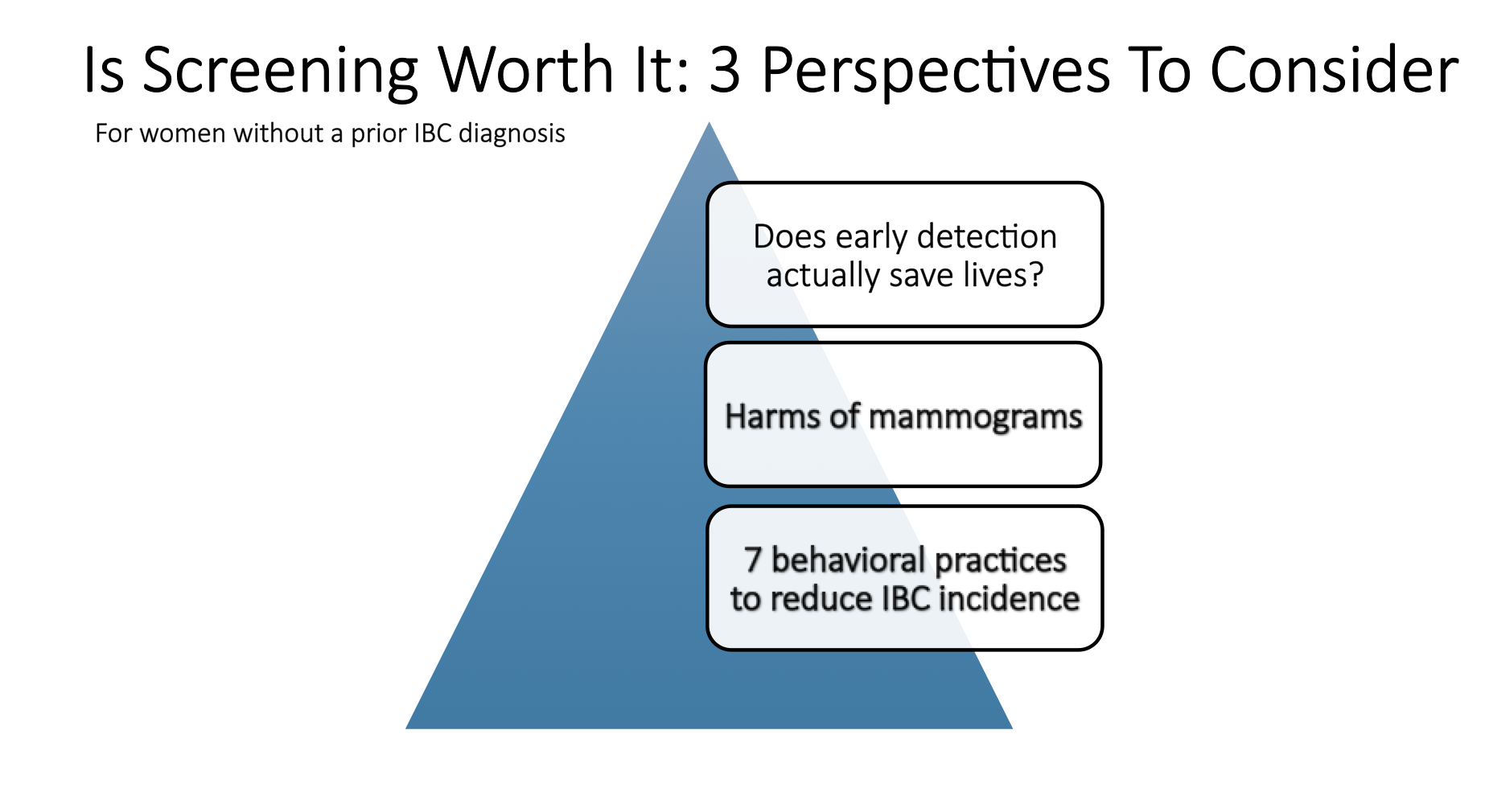
In terms of Total Lives Lost
Screening does not actually save lives.16
Screening has not reduced total mortality.1
Total mortality from breast cancer has been less than 1.2% regardless of screening.1
In terms of Breast Cancer Cases
Long term follow up showed no mortality benefit of repeated screening of women.1
Short term studies inflated by overdiagnosis appear to reduce mortality.
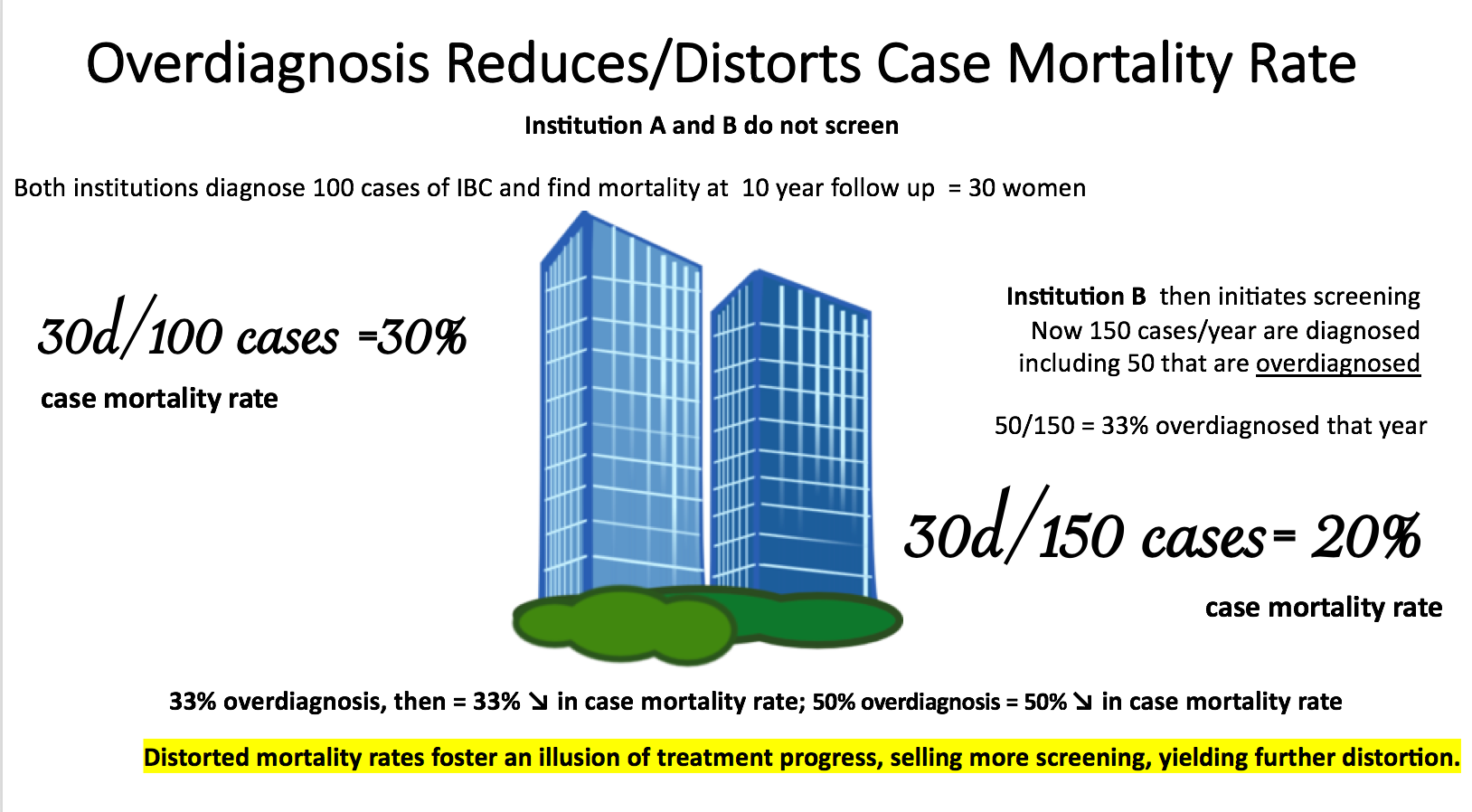
- Overdiagnosis 45%3-6 50%18 by 2018 adding digital mm
- Substantial False Positive Rate >42%7 in 8 yrs; 11%15 @ 1 yr
- Overtreatment w. toxic effects of surgery, radiation, chemo or HT 9,10
- Radiation ↑Breast Cancer 125/100K scns12 dig doubles+cumulative!
- Loss of Income for patient, time away from work: & i.e. brain fog
- Chronic Psychol + Physical Distress persists 13 yrs post + /– biopsy
- Substantial side effects common genitourinary syndrome 14
- Treatment Costs >$4B/year in US: [$850/fp,$12K/DCIS, $51.8K/IBC]15
- Conflicts of Interest and rarely disclosed16
- Failure to Warn Info Consent incomplete & not understandable17
Per Case:
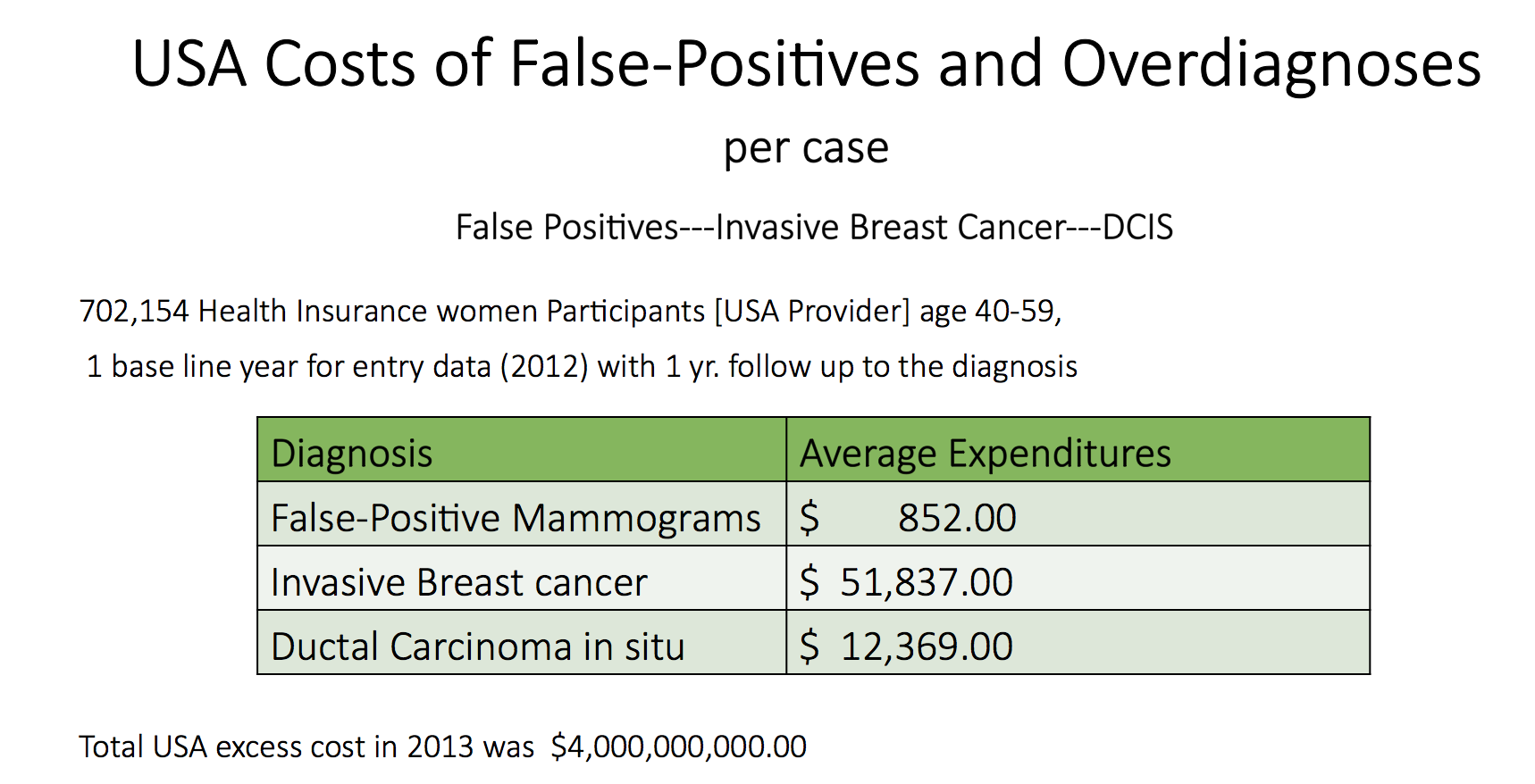
Aggregate Costs:
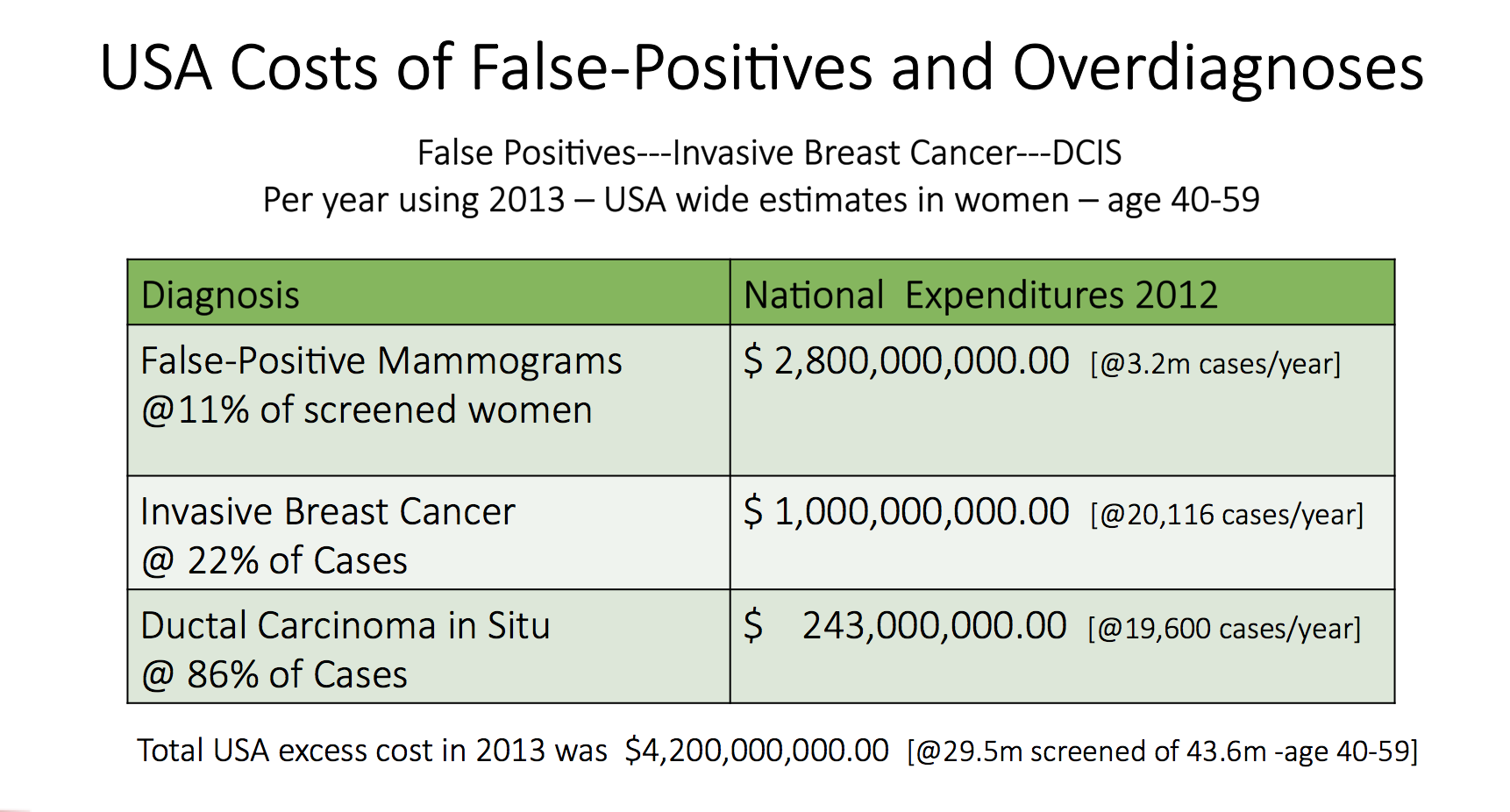
Sources:
- medscape.com/viewarticle/842820 (free subscription required)
- healthaffairs.org/doi/abs/10.1377/hlthaff.2014.1087
Radiation related Propotional risks of Death from Ischemic Heart Disease and Major Coronary Event.
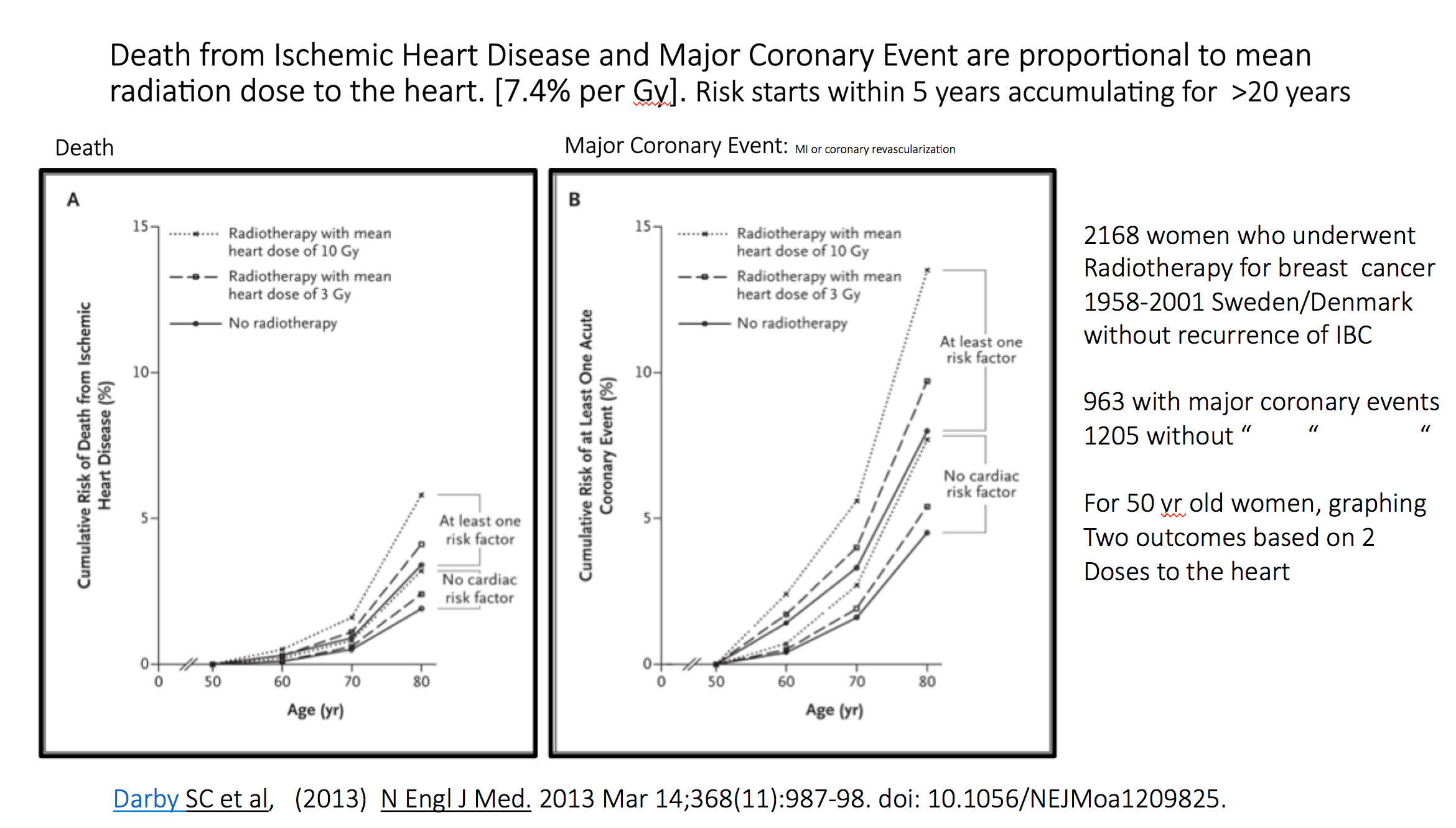
Coronary Effects from radiation treatment
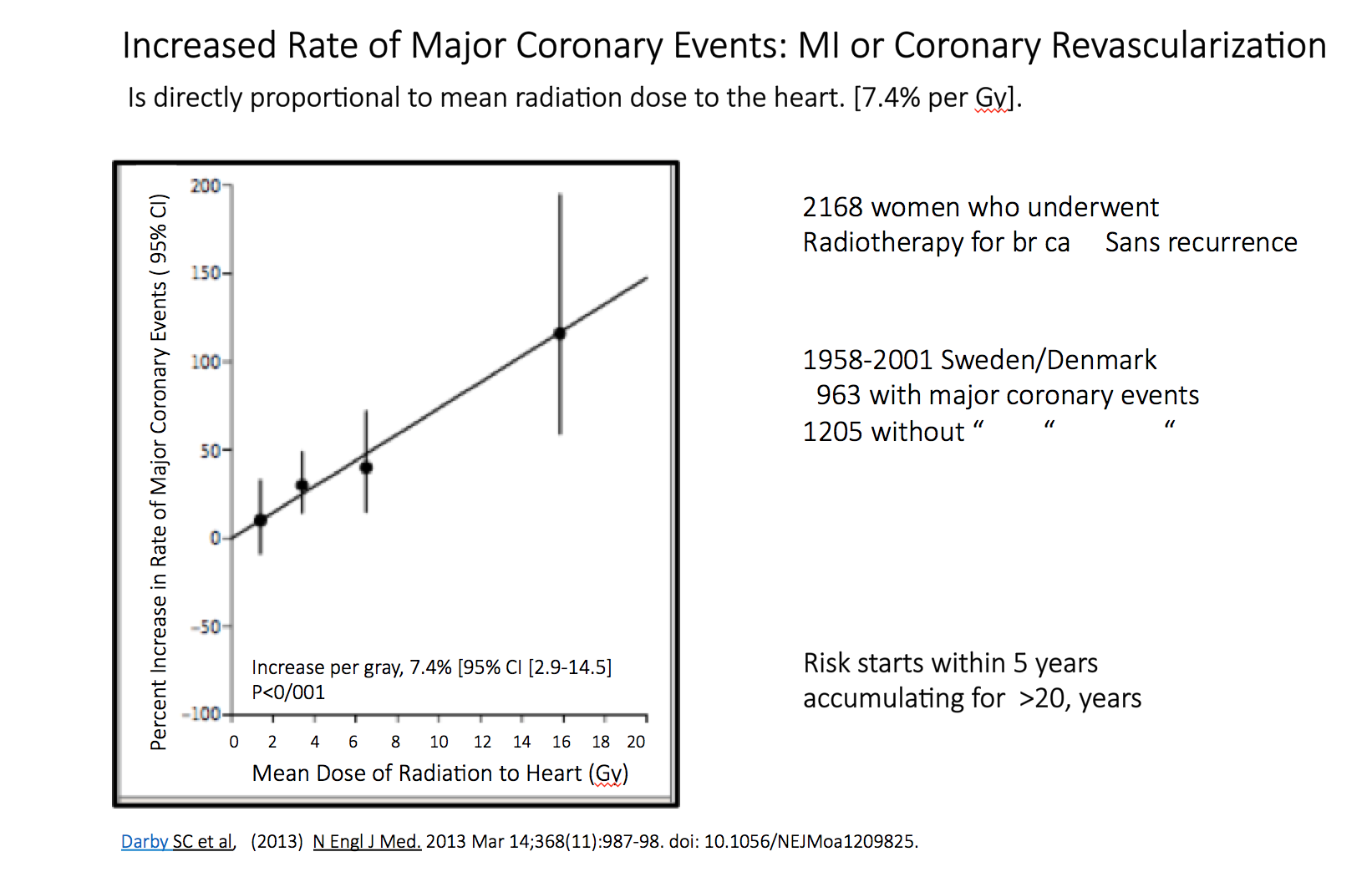
Side Effects of Cancer Treatment Drugs
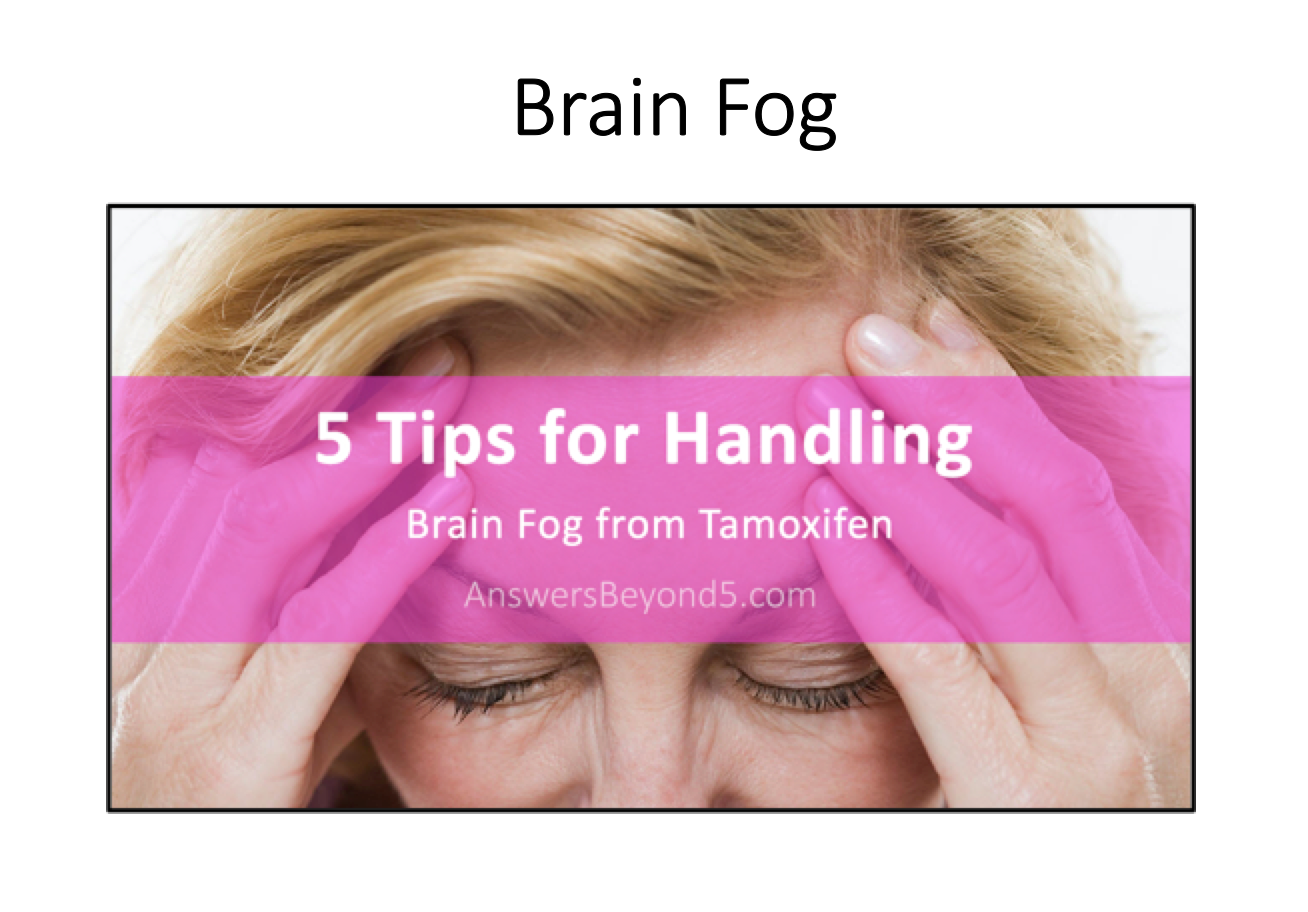
A recent ad from Compassionate Beauty:
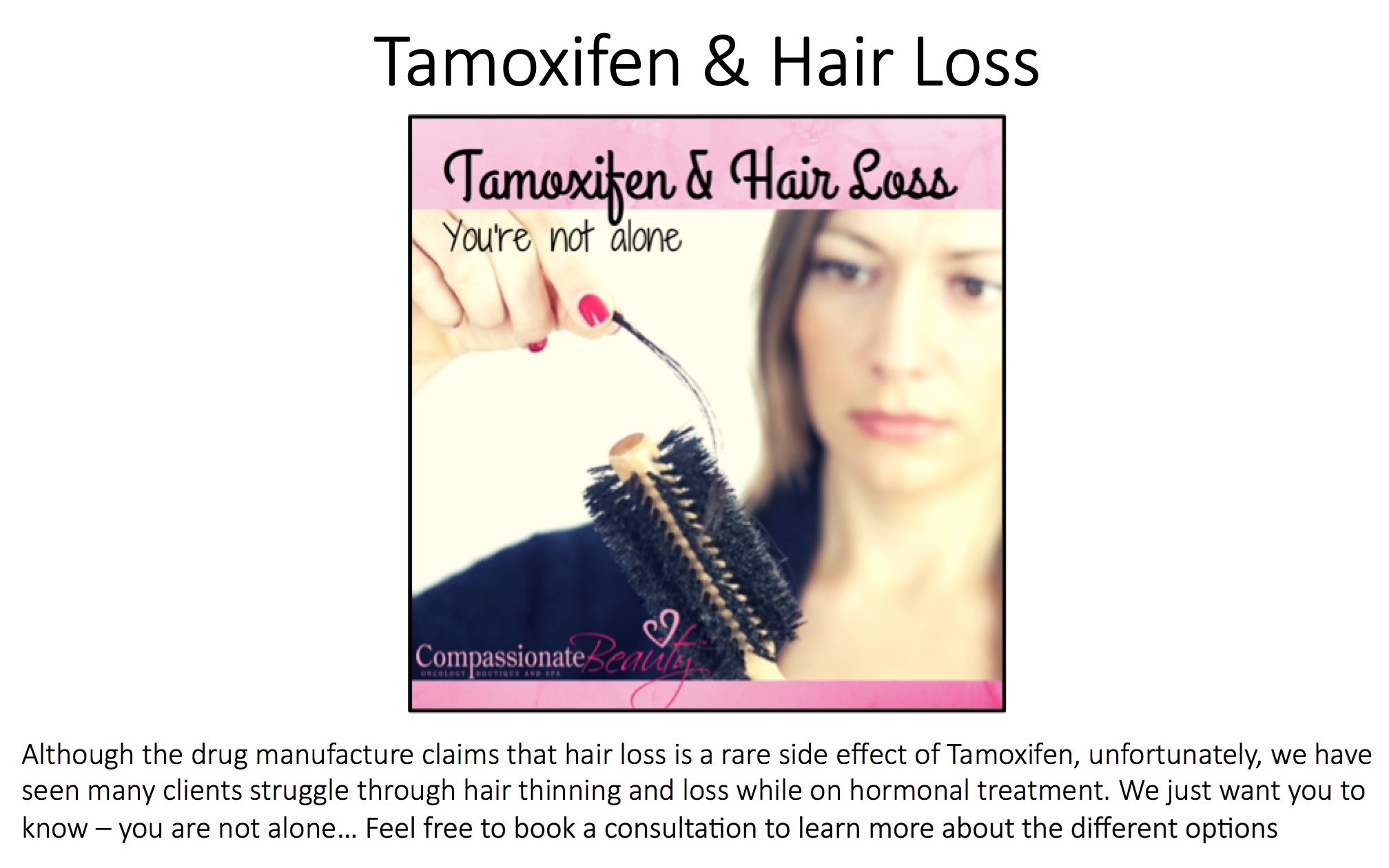
Seven Behavioral Practices that Increase Freedom from Breast Cancer and Reduce Overall Mortality
The greatest magnitude in risk reduction is attributable to 7 behaviors:2
- Prevent weight gain: Develop a healthful dietary practice (e.g. The Mediterranean Diet) and lose weight if overweight.
- Exercise daily: At least 30 minutes a day, ideally in fresh air; mini breaks during the day are very good.
- Enjoy wine in moderation, but avoid excess: approx. 6 ounces per day for a 140 pound woman = moderate.
- Get daily sunshine: Expose skin of whole body for about 15 minutes or take 2000 mg of Vitamin D3.
- Prevent the plunging progesterone and estrogen levels of peri and post menopause that trigger the increased incidence of breast cancer: Learn about and engage in the best individualized options.
- Discover the demonstrated benefits of sequential bioidentical MHT and the dangers of continuous combined and/or synthetic forms of MHT.
- If asymptomatic, refuse mammogram screening: Instead, submit to professional breast exams from an experienced health care provider.
Click on each heading to collapse or expand its contents.
" My research has consistently focused on what behavior a woman can engage in to increase her power, well-being, and vitality."
